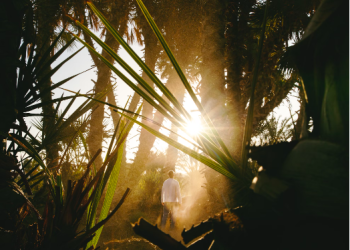Introduction
Scuba diving, a thrilling underwater activity, offers adventurers the opportunity to explore the depths of the ocean and discover hidden treasures in uncharted waters. From vibrant coral reefs teeming with marine life to mysterious shipwrecks resting on the ocean floor, scuba diving adventures promise an exhilarating journey into the unknown.
The Fascination of Scuba Diving
There’s something truly captivating about the world beneath the waves. As you descend into the depths of the ocean, you’ll experience a sense of weightlessness and freedom unlike anything on land. The underwater realm beckons with its mesmerizing beauty, inviting you to discover hidden treasures and encounter fascinating marine creatures in their natural habitat.
Health Benefits of Scuba Diving
Beyond the thrill of exploration, scuba diving offers numerous health benefits. The serene environment of the underwater world promotes relaxation and stress reduction, as you immerse yourself in the tranquility of the ocean. Additionally, the physical exertion of diving provides an excellent cardiovascular and respiratory workout, improving lung capacity and overall fitness levels.
Safety Measures in Scuba Diving
Safety is paramount in scuba diving, with proper training and certification essential for a safe and enjoyable experience. Before diving, it’s crucial to undergo comprehensive training from certified instructors, learning essential skills such as equipment operation, dive planning, and emergency procedures. Additionally, divers must conduct thorough equipment checks and adhere to established safety protocols to minimize the risk of accidents underwater.
Exploring Uncharted Waters
One of the most exciting aspects of scuba diving is the opportunity to explore uncharted waters. While popular dive destinations offer breathtaking beauty and abundant marine life, diving in remote or less-explored locations adds an element of adventure and discovery to your underwater experience. Whether diving in pristine coral reefs or exploring hidden caves and crevices, diving in uncharted waters promises thrilling encounters and unforgettable memories.
Diving Techniques and Skills
Mastering essential diving techniques and skills is crucial for a safe and successful dive. Buoyancy control, for example, allows divers to maintain their position in the water and conserve energy during dives. Similarly, underwater navigation skills enable divers to navigate through the underwater landscape and locate points of interest, such as dive sites, wrecks, and marine life. Moreover, practicing responsible diving practices, such as avoiding contact with fragile marine ecosystems and respecting marine life, is essential for preserving the underwater environment for future generations.
Preparation for Scuba Diving Adventures
Proper preparation is key to a successful scuba diving adventure. Before diving, it’s important to assess your physical fitness and health to ensure you’re fit for diving. Additionally, packing essential gear and equipment, such as wetsuits, masks, fins, and dive computers, is essential for a safe and comfortable dive. It’s also advisable to familiarize yourself with local diving regulations and conditions and to seek guidance from experienced divers or dive operators if diving in unfamiliar waters.
Experiencing the Wonders of Underwater World
Once underwater, you’ll be greeted by a kaleidoscope of colors and a diverse array of marine life. From graceful sea turtles and playful dolphins to colorful coral reefs and intricate underwater landscapes, the underwater world is a treasure trove of natural wonders waiting to be explored. As you dive deeper, you’ll gain a newfound appreciation for the beauty and fragility of marine ecosystems, inspiring you to become an advocate for ocean conservation and stewardship.
Conclusion
Scuba diving adventures offer a gateway to the mesmerizing world beneath the waves, where adventure and discovery await at every turn. Whether exploring pristine coral reefs, uncovering hidden shipwrecks, or encountering majestic marine creatures, scuba diving promises an unforgettable journey into the unknown. So why wait? Dive into the deep and embark on your own scuba diving adventure today.

FAQs After The Conclusion
- Is scuba diving dangerous?While scuba diving can pose certain risks, proper training, certification, and adherence to safety protocols can help minimize the risk of accidents and ensure a safe and enjoyable experience underwater. It’s essential to undergo comprehensive training from certified instructors and to conduct thorough equipment checks before diving.
- Do I need to be a strong swimmer to scuba dive?While basic swimming skills are essential for scuba diving, you don’t need to be a strong swimmer to enjoy diving. However, it’s important to feel comfortable in the water and to be able to tread water and swim short distances in case of emergencies.
- How deep can you dive while scuba diving?The maximum depth for recreational scuba diving is typically around 40 meters (130 feet), although most recreational dives are conducted at depths of 18 meters (60 feet) or shallower. Technical divers may dive to greater depths, but additional training and equipment are required for deeper dives.
- What should I do if I encounter marine life while diving?If you encounter marine life while diving, it’s essential to remain calm and avoid making sudden movements that could startle or provoke the animal. Respect marine life from a safe distance and avoid touching or harassing them. Most marine creatures are harmless if left undisturbed.
- Can I scuba dive if I have a medical condition?Scuba diving can be physically demanding, so it’s important to consult with a medical professional before diving, especially if you have a pre-existing medical condition. Some medical conditions, such as heart or lung problems, may preclude diving, while others may require clearance from a physician before diving.
- What should I do if I feel claustrophobic underwater?If you feel claustrophobic underwater, it’s essential to remain calm and focus on your breathing. Practice slow, deep breaths to help relax your body and mind. If necessary, signal to your dive buddy or instructor for assistance, and consider ascending to shallower depths until you feel comfortable.
- How can I become a certified scuba diver?To become a certified scuba diver, you’ll need to complete a scuba diving certification course from a recognized training agency, such as PADI or SSI. These courses typically consist of classroom sessions, confined water training, and open water dives, culminating in a certification that allows you to dive independently within the limits of your training.
- What are some popular scuba diving destinations?Popular scuba diving destinations include tropical regions such as the Caribbean, the Maldives, and the Great Barrier Reef, where divers can explore vibrant coral reefs and encounter colorful marine life. Other popular destinations include cold-water regions such as Norway, British Columbia, and Iceland, where divers can explore underwater caves, kelp forests, and shipwrecks.












